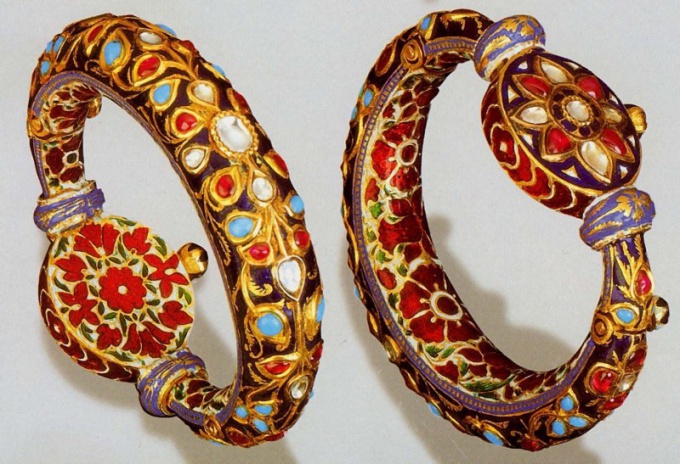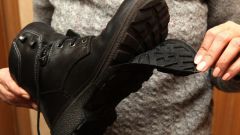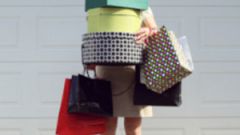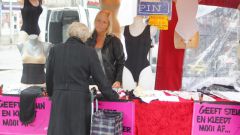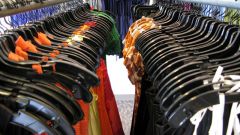The normative legal act in the first place, the law "On protection of consumers 'rights" to regulate the turnover of non-food products in the domestic market of Russia, they set the rule: a number of consumer goods exchange and non-refundable. A list of these products is specified in the Decree of the Government of the Russian Federation of January 19, 1998 № 55, to them, among others, include:
- baby items (diapers, pacifiers, etc.);
medical drugs and devices;
- personal care products (hair curlers, lenses, toothbrushes and so on);
- hosiery;
jewelry.
As can be seen from the list, to goods that cannot be returned include not just gold jewelry, and all kinds of jewelry, i.e. jewelry made from precious metals or with the use thereof, as well as jewelry with precious and semi-precious stones. The reasons for the ban on the return of the gold.
One of the reasons for the ban on the return of the gold trade network is a trivial pricing.
Equally important is the factor of fakes. The fact that visually distinguish the yellow metal and gold is extremely difficult, and the seller who offers the consumer a decoration, does not have to be an expert jeweler. Guarantee that the store sells that gold is not the authority of the seller, and a certificate that contains a unique number for each product. Once purchased, the decoration of the left wall of the store, for his "Golden" the origin can vouch only owner. To take the product back, the seller was forced to carry out a real examination brought things, but it is expensive and time consuming.
However, there are special cases where the seller is simply no way out and it takes the product back. This, for example, the presence of marriage. If the product has a pronounced defects, which can lead to further damage to jewelry, the store shall carry out examination, paying for it at the same time. If marriage is confirmed, the seller must return the consumer money, offer to repair the product or replace it with a new one.
Return the ornament to the buyer when there are objective doubts about the authenticity of the goods in the shop seemed genuine and the house is considered forgery. If the suspicions are confirmed by the buyer, the store does not just have to return the money in full, but also to inquire concerning the origin of the forgery.
There are also exceptions to the rule. The seller can take a positive decision to take back a product that just didn't fit the buyer. It is a voluntary decision, as based on the current legislative framework, the seller is not obliged to do. If you still fail to agree, then the return of the jewelry you need to present the receipt for its purchase. Also the decoration should be marketable and should be retained the factory tag.
- baby items (diapers, pacifiers, etc.);
medical drugs and devices;
- personal care products (hair curlers, lenses, toothbrushes and so on);
- hosiery;
jewelry.
As can be seen from the list, to goods that cannot be returned include not just gold jewelry, and all kinds of jewelry, i.e. jewelry made from precious metals or with the use thereof, as well as jewelry with precious and semi-precious stones. The reasons for the ban on the return of the gold.
Pricing and originality
One of the reasons for the ban on the return of the gold trade network is a trivial pricing.
Price in jewelry stores several times higher than the cost of the product, impact cost, brand or manufacturer's name.Markup on gold jewelry is very large, and take the product back, to return the money to the buyer just because he an hour later, just did not like the purchased item, at least logical.
Equally important is the factor of fakes. The fact that visually distinguish the yellow metal and gold is extremely difficult, and the seller who offers the consumer a decoration, does not have to be an expert jeweler. Guarantee that the store sells that gold is not the authority of the seller, and a certificate that contains a unique number for each product. Once purchased, the decoration of the left wall of the store, for his "Golden" the origin can vouch only owner. To take the product back, the seller was forced to carry out a real examination brought things, but it is expensive and time consuming.
When a seller is obliged to accept the product
However, there are special cases where the seller is simply no way out and it takes the product back. This, for example, the presence of marriage. If the product has a pronounced defects, which can lead to further damage to jewelry, the store shall carry out examination, paying for it at the same time. If marriage is confirmed, the seller must return the consumer money, offer to repair the product or replace it with a new one.
The reason for the failure of the seller to reimburse the buyer damages will serve as deliberate destruction of decoration.
Return the ornament to the buyer when there are objective doubts about the authenticity of the goods in the shop seemed genuine and the house is considered forgery. If the suspicions are confirmed by the buyer, the store does not just have to return the money in full, but also to inquire concerning the origin of the forgery.
There are also exceptions to the rule. The seller can take a positive decision to take back a product that just didn't fit the buyer. It is a voluntary decision, as based on the current legislative framework, the seller is not obliged to do. If you still fail to agree, then the return of the jewelry you need to present the receipt for its purchase. Also the decoration should be marketable and should be retained the factory tag.
